The Zaporizhzhia Journalists’ Solidarity Center (JSC) of the National Union of Journalists of Ukraine (NUJU) has held a final psychological training within the framework of the All-Ukrainian mental health program, How Are You? Over six months, the journalists learned self-aid techniques, stress resistance in case of professional burnout, and techniques for facing today’s challenges. All the course coaches gathered in the press center: the regional coordinator of the program, practical psychologist Serhii Druzhynin, clinical psychologist Olha Lotsman, and Dariya Boiko.
Serhii Druzhynin told journalists about the main directions of this program and the course of its implementation. Currently, there are 412 centers of psychological support in the region. Family doctors who now provide psychological help not only to patients but also to their colleagues – doctors from Zaporizhzhia hospitals, who also feel the need for it, have received appropriate professional training.
“Our task,” says Serhii Druzhynin, “is to convince people that taking care of mental health is as important as doing so of one’s physical health. Notably, people’s trust in psychologists has increased significantly recently. Through the survey, it became clear that over 50% of the region’s population trusts psychologists and rates the quality of psychological assistance quite highly. People are mostly worried about when the war will end, how to overcome fatigue and fear, and what they will be able to do after returning home from evacuation.”
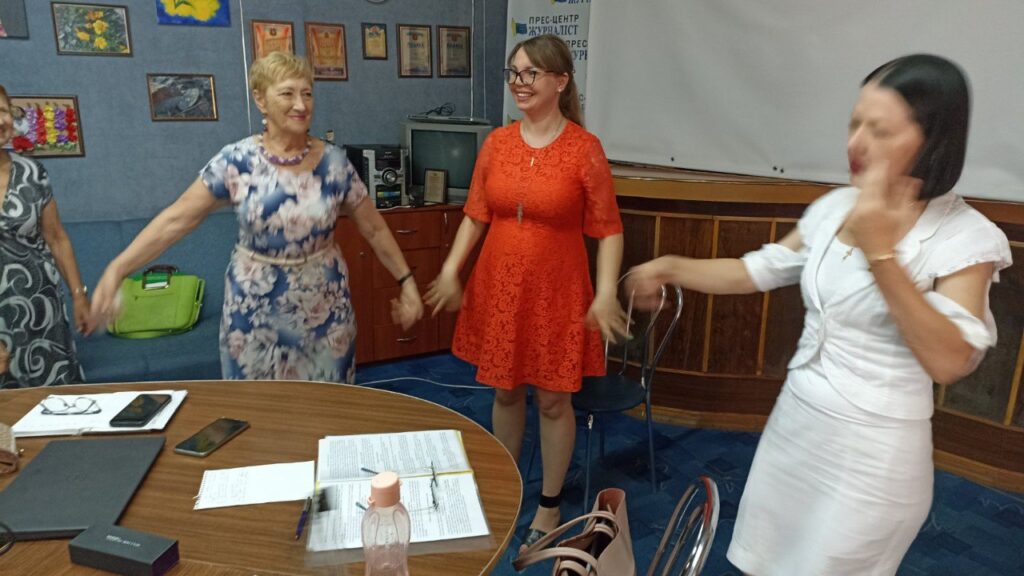
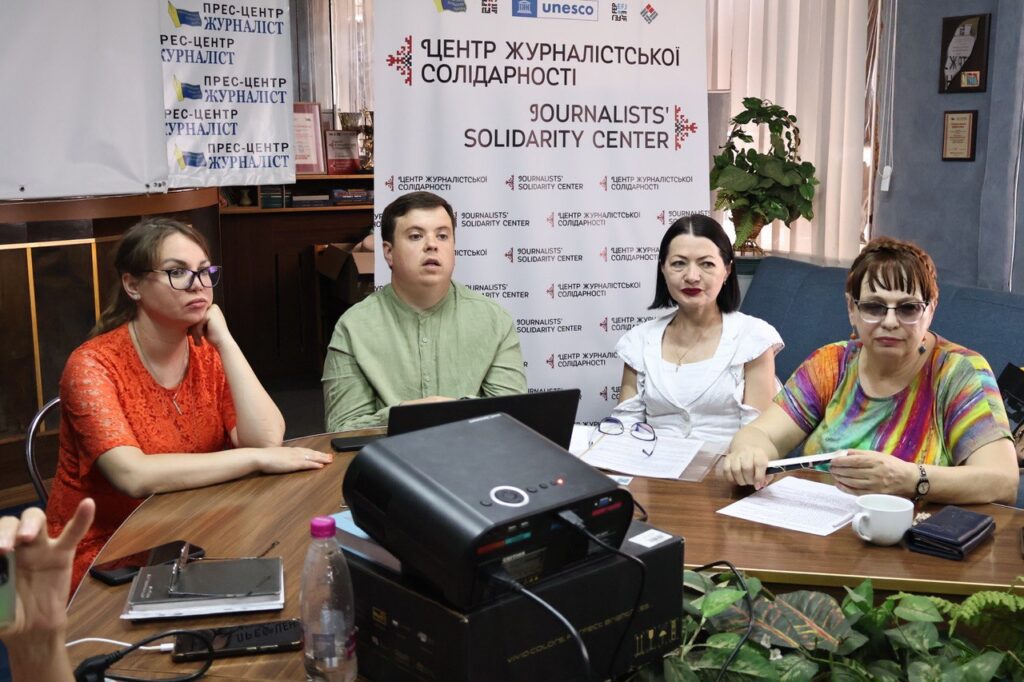
The mental health program is implemented in 17 communities of the region. Mental health prevention training sessions and information campaigns are conducted, including, thanks to established cooperation with the media, which became possible as a result of cooperation with the Zaporizhzhia JSC of the NUJU.
“Recently, we have felt the increased interest of Zaporizhzhia residents in providing psychological help since before the promotion of the program, How Are You? journalists joined. We can say that our work is scaling up because the media workers themselves now take part in psychological training sessions on a permanent basis, so network distribution now plays its role. Young people now turn to psychologists for advice more often. First of all, it is connected with the war and the problems it brings. We teach them to overcome stress on their own and at the same time learn by ourselves,” says Olha Lotsman.
By the way, When Olha started conducting training sessions at the JSC, the psychologist started to study international experience in Poland, America, and Croatia.
In the practical part of the training, Olha Lotsman and Dariya Boiko reminded the journalists of the important stabilizing self-help exercises they learned throughout the course.
Psychologists and journalists agreed on cooperation in the next six months.
Call the Zaporizhzhia JSC at 096 277 5352 (Nataliya Kuzmenko and Valentyna Manzhura, the Zaporizhzhia JSC coordinators). The Center’s address is 152 Sobornyi Avenue.
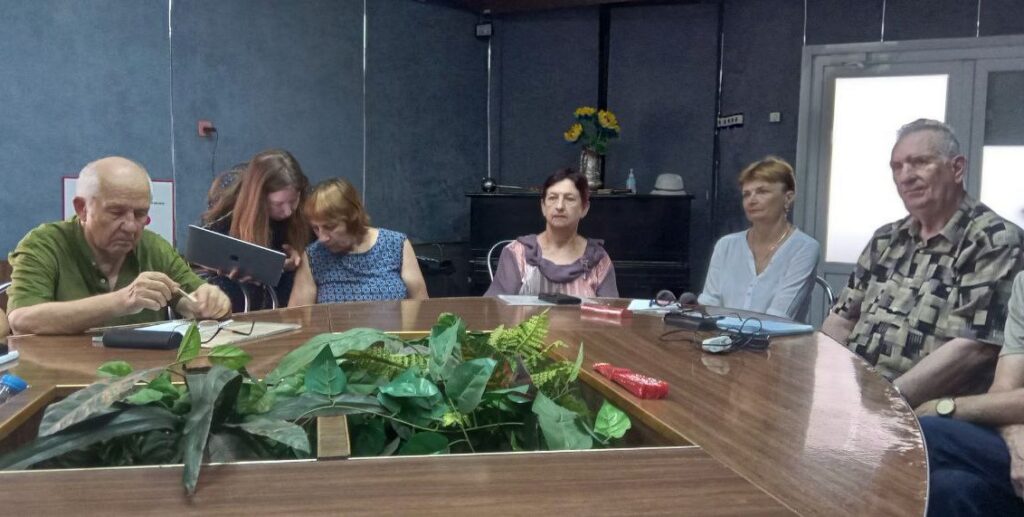
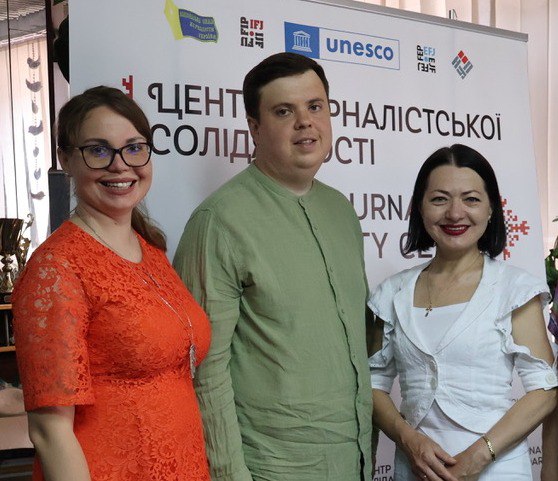
ABOUT JSC
The Journalists’ Solidarity Centers is an initiative of the NUJU implemented with the support of the International and European Federations of Journalists and UNESCO. The initiative is designated to help media representatives working in Ukraine during the war. The Centers operate in Kyiv, Lviv, Ivano-Frankivsk, Chernivtsi, Zaporizhzhia, and Dnipro and provide journalists with organizational, technical, legal, psychological, and other types of assistance.
ABOUT UNESCO
UNESCO is the United Nations Educational, Scientific, and Cultural Organization. It contributes to peace and security by promoting international cooperation in education, sciences, culture, communication, and information. UNESCO promotes knowledge sharing and the free flow of ideas to accelerate mutual understanding. It is the coordinator of the UN Action Plan on the Safety of Journalists and the Issue of Impunity, which aims to create a free and safe environment for journalists and media workers, thus strengthening peace, democracy, and sustainable development worldwide. UNESCO is working closely with its partner organizations in Ukraine to provide support to journalists on the ground.
The designations employed and the presentation of material throughout this digest do not imply the expression of any opinion whatsoever on the part of UNESCO concerning the legal status of any country, territory, city, or area or its authorities or concerning the delimitation of its frontiers or boundaries.
The authors are responsible for the choice and the presentation of the facts contained in this digest and for the opinions expressed therein, which are not necessarily those of UNESCO and do not commit to the organization.
Nataliya Vadymova, Nina Derkach
Photo by Dariya Zyrianova

 THE NATIONAL UNION OF
JOURNALISTS OF UKRAINE
THE NATIONAL UNION OF
JOURNALISTS OF UKRAINE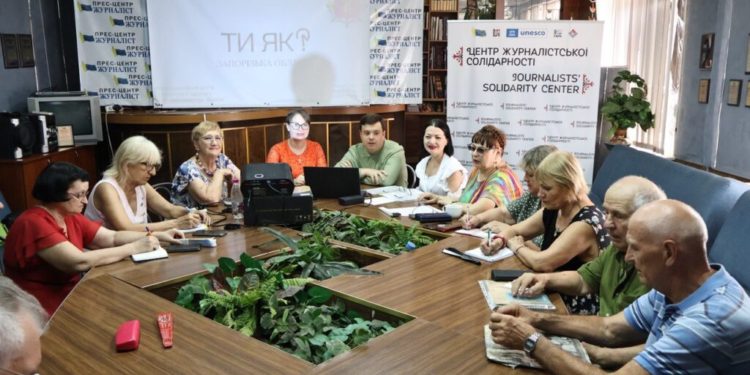
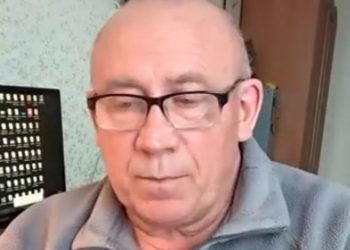
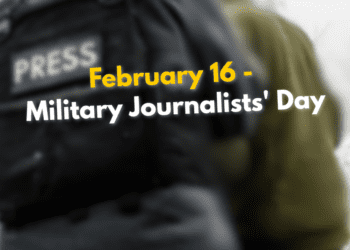














Discussion about this post